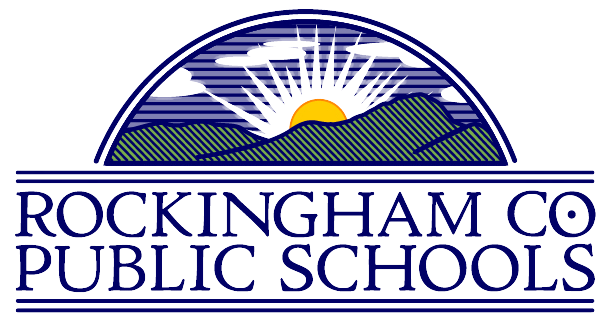When Financial Literacy Month officially ends on April 30, the collaborative work between James Madison University's Center for Economic Education and Rockingham County Public Schools (RCPS) doesn't pause, it amplifies! This year's theme, "Together, We're Stronger," perfectly captures the essence of a partnership that has grown each year, by promoting financial literacy education throughout our community.
"I am truly grateful for our partnership with RCPS," reflects Lauren H. Shifflett, Associate Director of JMU's Center for Economic Education. "It has been instrumental in putting economics and personal finance resources into the hands of our teachers, ensuring that students, from elementary school through graduation, are better prepared for the world ahead."
This academic year alone, the Center has planned and implemented economics lessons at numerous schools including Peak View Elementary, South River Elementary, Elkton Elementary, Spotswood High School, Pleasant Valley Elementary, John C. Myers Elementary, and Fulks Run Elementary. Rather than providing one-size-fits-all materials, the Center asks teachers which Virginia Standards of Learning they want to emphasize, then customizes lessons accordingly.
The results speak volumes. In Peak View Elementary's second grade, Shifflett taught monthly economics lessons, including a memorable production activity where students created greeting cards against a timer. When quality control was introduced, students discovered firsthand the value of teamwork and specialization economic concepts brought to life through hands-on learning.
The Stock Market Game has been another cornerstone initiative, giving students practical experience with investing and financial decision-making. Schools like J. Frank Hillyard Middle School and Broadway High School have produced multiple winners this year, demonstrating how simulation-based learning translates to real financial skills.
For younger students, the Global Entrepreneurship Market (GEM) Fair at JMU provides an immersive introduction to entrepreneurship. Second-graders from John C. Myers and Peak View Elementary Schools participated this year, creating products and experiencing the roles of both producers and consumers.
"One of my favorite moments was watching students from Pleasant Valley Elementary's first-grade market implement their marketing strategies," Shifflett shares. "What impressed me most was that they used real money, and these first graders knew how to count change better than many adults!"
The partnership between JMU and RCPS continues to evolve, with several innovative programs gaining momentum. One of the most significant developments has been the creation and expansion of the FBLA Xchange programs.
"I think the biggest evolution in recent years has been the creation of the FBLA Xchange for both the middle and high school as well as the Young Entrepreneur Summit," explains John Kruggel, Director of JMU's Center for Economic Education. "We started the high school FBLA Xchange with the help of RCPS around 6 years ago and added the middle school version around 3 years ago. Our Young Entrepreneur Summit started this year."
These programs provide real-world business applications for students interested in becoming future business leaders. "Each year we see more students from RCPS benefitting from these programs and the real-world application they bring to potential future business leaders," adds Kruggel.
Beyond these successful exchanges, Kruggel points to three additional promising initiatives:
"For me, there are three programs that I think will continue to grow and evolve to better meet the needs of RCPS teachers and students," notes Kruggel.
First is the W!SE Test prep curriculum (Money Lingo: Bridging the Gap in Personal Finance), developed partly in response to concerns raised by local schools. Available in English, Spanish, and Arabic, this resource aims to increase pass rates for all students taking the W!SE test, particularly supporting English learners.
Second, the Econ Explorers Box provides ready-to-use curricula designed to meet elementary economic standards, with plans to expand to middle and high school levels based on specific topics.
Finally, the Checking Out Your Economic Success (COYES) boxes combine economics with literacy, containing all materials needed to teach cross-curricular activities related to a specific book's theme.
The annual awards ceremony hosted by the Center has become a celebrated occasion for RCPS educators. "Each year teachers share some amazing stories about the work they are doing and what their students are learning," Kruggel explains. "RCPS teachers have been well represented at the last few awards ceremonies, which I think speaks to the great work they are doing to teach personal finance in the classroom."
What makes these initiatives particularly successful is the broader community involvement. The recent GEM Fair saw parent volunteers helping students, with district leadership including Division Superintendent, Dr. Larry Shifflett and Supervisor of Career and Technical Education, Carrie Gray visiting each student participant. This level of engagement exemplifies how financial literacy education thrives when supported by a network that extends beyond classroom walls.
As we look beyond Financial Literacy Month, both the JMU Center for Economic Education and RCPS remain committed to their shared mission. The focus continues to be on providing support that makes economic literacy practical, engaging, and accessible year-round.
"Together, across all grade levels, we are helping build a stronger, more equipped future," concludes Shifflett.
The month may be ending, but for the educators and students in Rockingham County, financial literacy remains an ongoing journey strengthened by collaboration, innovation, and community support; proving that when it comes to preparing our youth for financial success, we truly are stronger together.
This article celebrates Financial Literacy Month 2025 and the ongoing partnership between JMU's Center for Economic Education and Rockingham County Public Schools. For more information about financial literacy programs and resources, contact the JMU Center for Economic Education.

